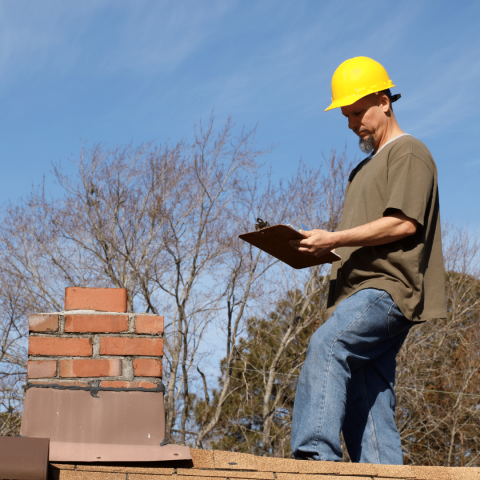Understanding the best time for roof inspections is paramount for homeowners looking to maintain their property’s integrity while managing a busy lifestyle. With Colorado’s unique weather patterns, timing these inspections can greatly impact the longevity of your roofing system. This article will elucidate the most opportune periods for roof evaluations, tailored for the pragmatic homeowner who values efficiency and thoroughness.
As we delve into the details, remember that the best time for roof inspections is a vital consideration for effective maintenance.The best time for roof inspections is typically during the fall and spring. Fall inspections prepare roofs for winter stresses, while spring inspections address any winter damage. It’s crucial to avoid extreme weather conditions for safety and accuracy.
Key Takeaways
- The best time for roof inspections in Colorado is during the fall and spring.
- Fall inspections prepare your home for winter, while spring inspections address any resulting damages.
- Scheduling during these times can prevent emergency repairs and prolong the life of your roofing system.
- It’s essential to work with professional inspectors to ensure the safety and accuracy of your roof inspections.
As a homeowner with a full schedule and a commitment to maintaining a safe and efficient household, the following insights will guide you through the nuances of scheduling your roof inspections at times that will best serve the longevity of your home and peace of mind. Continue reading to delve into how this knowledge can streamline your home maintenance tasks without compromising your busy work and family life.
Why Timing is Critical for Roof Inspections
Colorado’s seasons bring diverse challenges to roofing materials. The blistering summer sun can warp or crack shingles, while heavy snowfall in winter can test a roof’s structural integrity. To ensure the safety and durability of your roofing, understanding the best time for roof inspections and timing inspections with the seasonal calendar is essential.
During inspections, professionals assess the impact of seasonal weather on your roofing materials. Shingles, tiles, and gutters each have their own vulnerabilities. By timing your inspections strategically, you can catch potential issues before they escalate.
For busy homeowners who juggle work and family, fitting in home maintenance can be a challenge. The best time for roof inspections should coincide with a period that allows for minimal disruption and optimal weather conditions – typically fall and spring in Colorado.
Best Time for Roof Inspections
Fall Inspections: Preparing for Winter
Fall provides a sweet spot for roof inspections. It’s a proactive step to ensure your home is ready to withstand Colorado’s harsh winter conditions.
Before the snow and ice set in, a fall inspection can reveal areas that need reinforcement or repair, such as loose shingles or blocked gutters.
Inspecting your roof in the fall has several advantages:
- It can prevent water damage caused by melting snow and ice.
- It allows ample time for repairs before winter sets in.
- You can avoid the rush of emergency repairs during colder months.
A comprehensive roof inspection in the fall should include:
- Checking for cracked, missing, or warped shingles.
- Inspecting seals around vents and chimneys.
- Clearing gutters and downspouts – For optimal roof health, we recommend consulting a local gutter cleaning service, as gutter and downspout cleaning is not covered in our services.
Spring Inspections: Post-Winter and Pre-Hail Season Preparation
With the arrival of spring and the melting of snow, it’s a pivotal time for homeowners to assess the winter’s impact on their roofs. Spring inspections are not only essential for identifying damage from the cold months but also serve as a proactive measure before the hail season, common in areas like Colorado. Key aspects include:
- Post-Winter Damage Assessment: Spring inspections are crucial for identifying damages caused by winter storms and freezing temperatures. This is the time to spot and address issues like ice dams or heavy snow accumulation, which can have severe impacts on roof integrity.
- Preparation for Hail Season: In Colorado we are prone to hail, a spring inspection provides a baseline health report of your roof. This pre-hail season check-up is critical for understanding the condition of your roof before potential storm damage, making it easier to identify any new damage caused by hail.
During the inspection, focus on:
- Ensuring shingles and gutters are intact and functional, crucial for effective water drainage.
- Checking the interior for leaks, as they indicate roof damage.
- Evaluating the roof’s overall structural health, looking for signs of sagging or unevenness.
A professional inspection can be particularly beneficial, offering a detailed assessment of potential weak points and overall roof health, ensuring the roof is prepared for the varied weather challenges of spring and beyond. Knowing the best time for roof inspections also involves understanding when not to schedule them.
When to Avoid Roof Inspections
Timing is critical when it comes to roof inspections, and there are definitive times when they should be postponed. Conducting inspections during extreme weather conditions, such as the intense snowfalls common in Colorado, torrential downpours, or strong winds, can be more perilous than productive. Snow can conceal defects and create hazardous conditions for inspectors. Rain can make roofs slippery and obscure leak detection, while winds can pose physical dangers and potentially exacerbate or disguise existing damage.
For a homeowner, it’s wise to schedule inspections when the weather is clear and calm to ensure the safety of the inspectors and the accuracy of the assessment. Waiting for favorable weather conditions is not just a safety measure; it’s a step toward obtaining a true evaluation of the roof’s condition.
Planning Your Inspection
Part of planning your inspection involves recognizing the best time for roof inspections in your specific region. Scheduling an inspection may seem daunting, but breaking it down into steps can simplify the process.
- How to Schedule an Inspection: To find the best time for roof inspections, consider your personal schedule, local weather patterns, and roofing company availability.
- What to Expect During an Inspection: A typical roof inspection will involve a roofing professional examining the exterior and interior of your home’s roofing system, looking for signs of wear and damage.
- Post-Inspection: Interpreting Results and Next Steps: After an inspection, your roofing professional will provide a report detailing any issues and recommend a course of action for repairs or maintenance.
Additional Considerations:
- The Role of Professional Inspectors: Professional inspectors are equipped with the knowledge and tools to perform thorough and safe inspections, crucial for maintaining the health of your roof.
- DIY vs Professional Inspections: While DIY inspections can be tempting, professional services offer a level of thoroughness and expertise that ensures all issues are identified and properly addressed.
- Long-Term Roof Maintenance Strategies: Developing a long-term maintenance strategy for your roof can prevent unexpected expenses and extend the life of your roof.
Balancing Home Maintenance with a Busy Lifestyle
Managing a household while maintaining a career is no small feat. Timely roof inspections are a critical part of home maintenance that ensures the safety and longevity of your property. Just Roofs & Gutters understands the demands of a busy lifestyle and the importance of a secure home. Our services are designed to offer peace of mind through dependable, high-quality roofing solutions.
Don’t wait for a roofing emergency. Schedule your seasonal roof inspection today and ensure your home is protected year-round. Contact Just Roofs & Gutters for a professional assessment that aligns with your busy schedule and provides peace of mind.
How often should I have my roof professionally inspected to maintain its condition?
Professionally conducted roof inspections are recommended at least once a year to maintain the condition of your roof effectively. However, if you live in areas with severe weather conditions, like Colorado, it’s advisable to inspect your roof twice a year, during the spring and fall, to address any potential damage from extreme weather. Additionally, after any significant weather event, such as a hailstorm or a heavy snowfall, a roof inspection should be considered to ensure any damage is promptly addressed. Regular inspections can help identify potential issues early, saving money and extending the lifespan of your roof.





